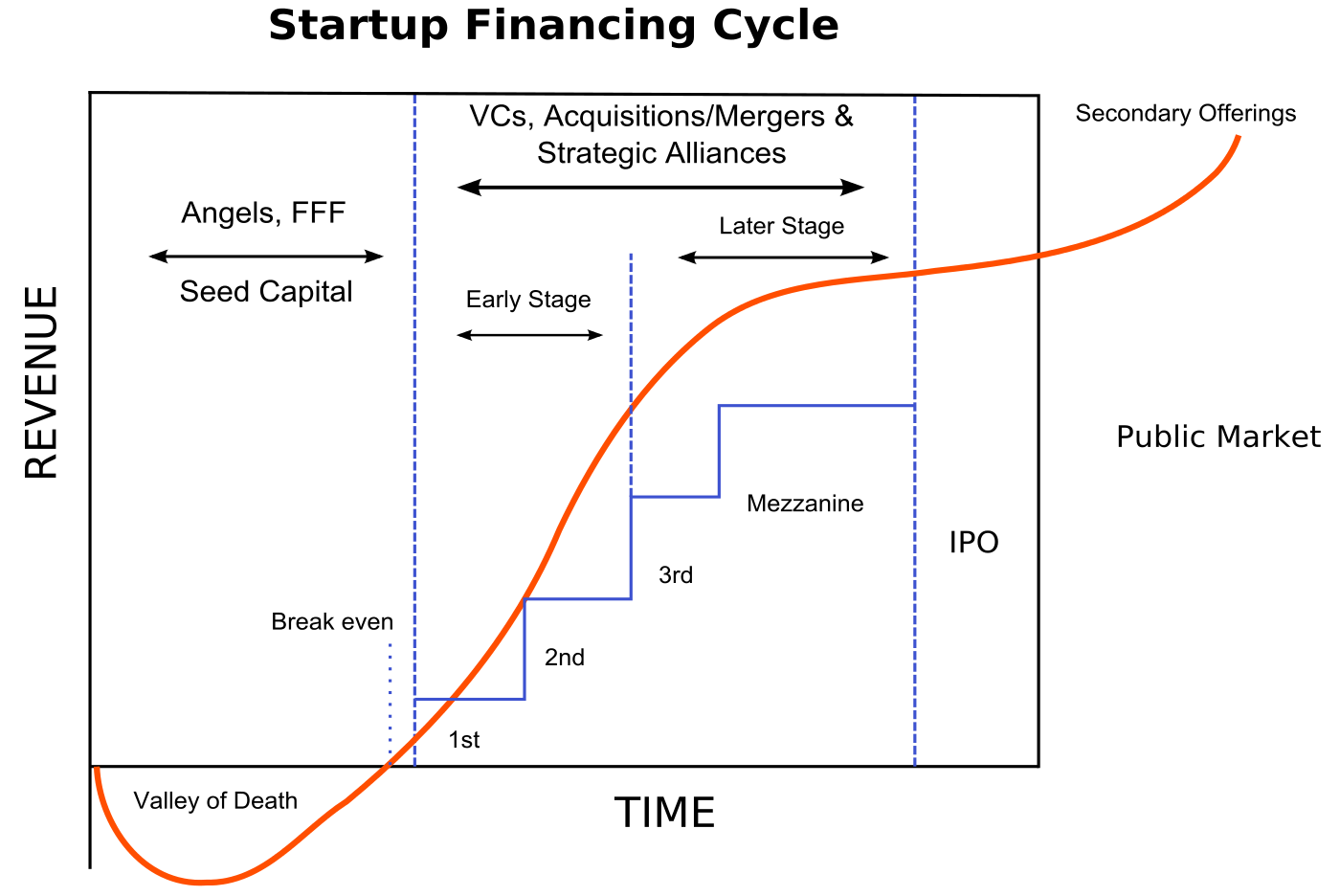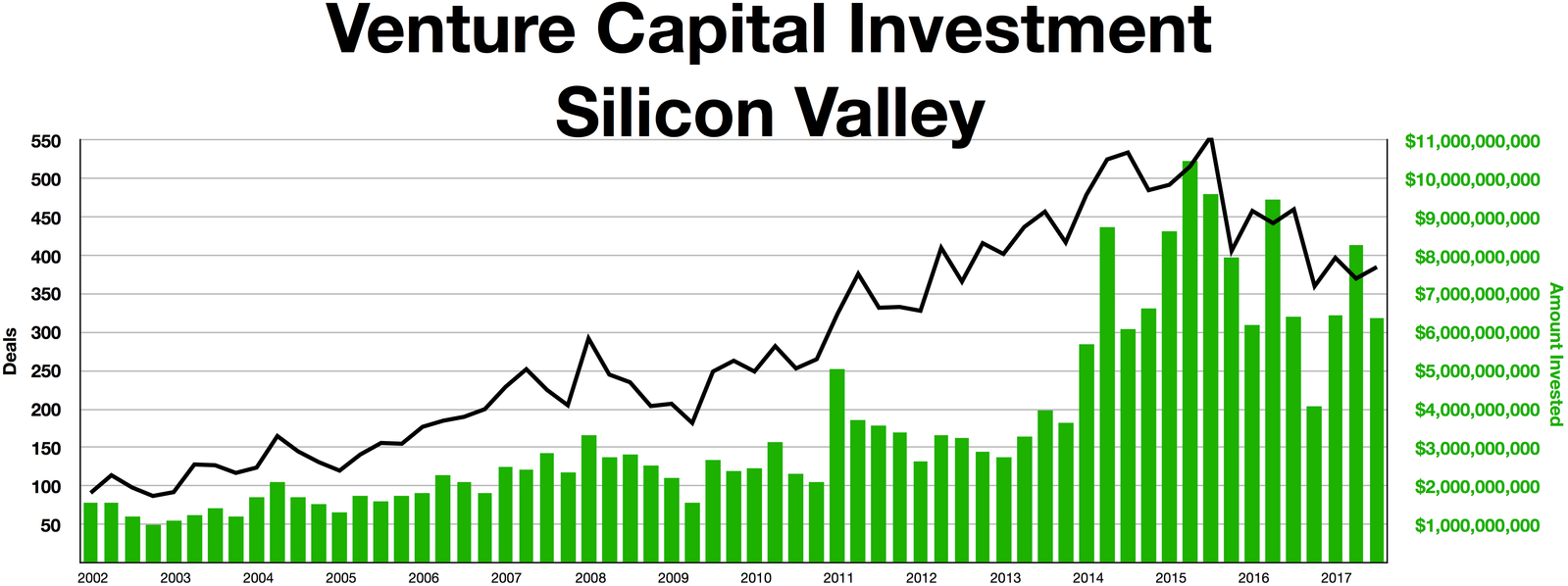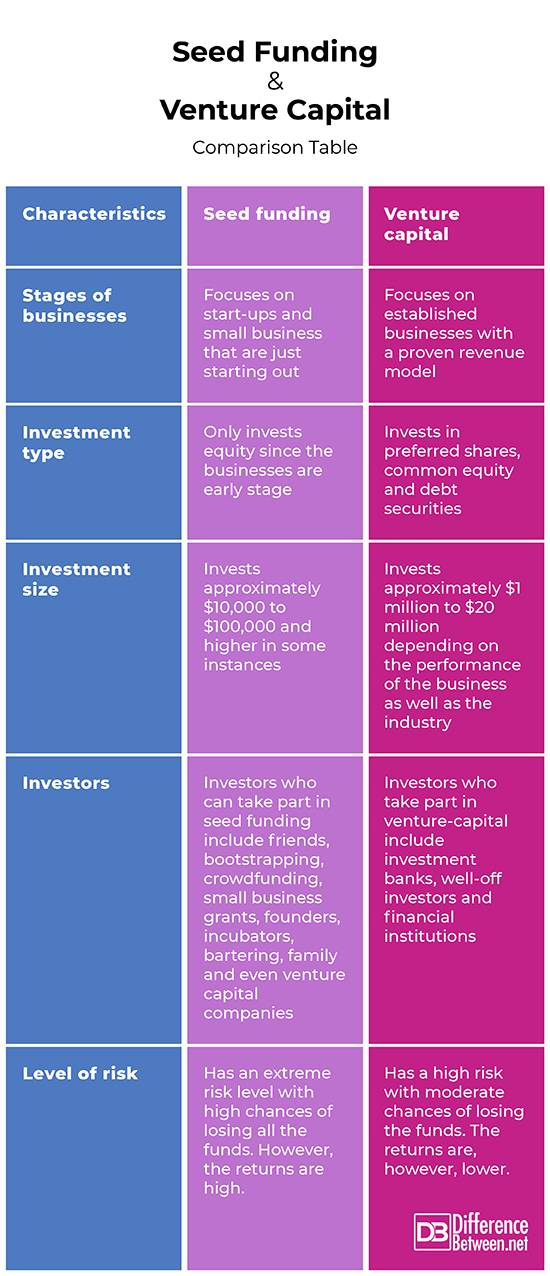Difference Between Seed Funding and Venture Capital
Running a business is not a walk in the park. Businesses often undergo many challenges from the start, with some even failing to break through. Funding is one of the main concepts that aid businesses in different sectors such as financing and the provision of know-how on how to run a business. You have probably come across the terms seed or angel investors, private equity and venture capital. In this article, we will look at the difference between seed funding and venture capital.

What is Seed Funding?
This is the initial equity in the funding stage. It is the first official funds that a business raises to help grow the business. Seed investors often participate in early-stage businesses that may not have garnered much revenue or even with zero customers. The decision to invest in the business or not is often based on the business plan, a beta test, a prototype or the minimum viable product.
The concept of seed funding takes on the analogy of a seed. If planted, the seed and grow into a tree and potentially provide fruits. Similarly, businesses use seed funding from investors and use it to grow the business. The funding helps businesses finance their first steps such as product development and market research.
Among the investors who can take part in seed funding include friends, bootstrapping, crowdfunding, small business grants, founders, incubators, bartering, family and even venture capital companies. Angel investors are also common in seed funding as they undertake riskier ventures.
Seed rounds vary with companies. However, most companies can raise approximately $10,000 to $2 million.
The advantages of seed funding for a start-up includes:
- It is a no-debt type of financing
- Angels share experience and knowledge that is vital in running the business
- There are zero monthly fees
- It builds networks, relationships and a community
- It offers high growth prospects
- It attracts investors who are willing to take risks
- It has flexible start-up arrangements
However, it has disadvantages such as:
- It can divert the attention of a business owner from vital business operations to fulfilling the seed funding needs
- If angel investors are used, business owners can lose control of the business operations not forgetting high interference
- Some entrepreneurs may interpret the seed capital garnered as an achievement and fail to work towards the business needs
- Most investors require the businesses to give up equity to get funding
- It is a risky exercise hence can be costly
- The investments are only available for a limited period

What is Venture Capital?
This is private equity provided to start-ups and small businesses that have long- term growth potential. Venture capital is provided by investment banks, well-off investors and financial institutions. It can be in the form of money as well as non-monetary forms such as managerial or technical expertise.
Although it’s a risky venture, the returns for the venture capitalists can be rewarding if the business picks up. This is because large ownership is awarded to the investors in exchange for the capital.
Advantages of venture capital include:
- It provides a business expansion avenue that is different from loans
- Businesses get expertise and valuable guidance through consultations and active involvement from the venture capitalists
- Builds connections and networks that help propel businesses forward
- Businesses get loans without any obligation to pay
- Venture capitalists are regulated by the authorities in most regions. This makes them trustworthy business partners
However, the disadvantages include:
- It dilutes business control and ownership
- An early redemption by a venture capitalist may be unsuitable for an investor who is depending on the liquidity to run the business
- The venture capital process is long and complicated. Venture capitalists may also take longer to make investment decisions, further lagging the process
- Venture capitalists often require investments with a ROI
Similarities between Seed funding and Venture capital
- Both aim at earning the highest rates of return from their investments
Differences between Seed funding and Venture capital
Stages of businesses
While seed funding focuses on start-ups and small businesses that are just starting, venture capital focuses on established businesses with a proven revenue model.
Investment type
While seed funding only invests equity since the businesses are early stage, venture capital invests in preferred shares, common equity and debt securities.
Investment size
Seed funding invests approximately $10,000 to $100,000 and higher in some instances. On the other hand, venture capital invests approximately $1 million to $20 million depending on the performance of the business as well as the industry.
Investors
Investors who can take part in seed funding include friends, bootstrapping, crowdfunding, small business grants, founders, incubators, bartering, family and even venture capital companies. On the other hand, investors who take part in venture capital include investment banks, well-off investors and financial institutions.
Level of risk
Seed funding has an extreme risk level with the chances of losing all the funds. However, the returns are higher. On the other hand, venture capital has a high risk with moderate chances of losing the funds. The returns are, however, lower.
Seed funding vs. Venture capital: Comparison Table

Summary of Seed funding vs. Venture capital
Seed funding focuses on start-ups and small businesses that are just starting. As such, seed funding only invests equity since the businesses are early stage. While it has an extreme risk level with high chances of losing all the funds, the returns are high. On the other hand, venture capital focuses on established businesses with a proven revenue model. It invests in preferred shares, common equity and debt securities and has a high risk with moderate chances of losing the funds. The returns are, however, lower.
- Difference Between Profit Center and Investment Center - July 2, 2022
- Difference Between Anti-Trust and Anti-Competition - June 6, 2022
- Difference Between Stocktaking and Stock Control - June 6, 2022
Search DifferenceBetween.net :
Leave a Response
References :
[0]Purdue University. Private Equity for Small Firms: The Importance of the Participating Securities Program. U.S. Government Printing Office, 2012. https://books.google.co.ke/books?id=loVpDLVdC2kC&pg=PA54&dq=Difference+between+seed+funding+and+venture+capital&hl=en&sa=X&ved=2ahUKEwjl7aTewunvAhWJUBUIHTv6DswQ6AEwA3oECAQQAg#v=onepage&q=Difference%20between%20seed%20funding%20and%20venture%20capital&f=false
[1]Pennsylvania State University. Small Business Technology Transfer Pilot Program. U.S. Government Printing Office, 2010.https://books.google.co.ke/books?id=Ktn2zQHawbIC&pg=PA89&dq=Difference+between+seed+funding+and+venture+capital&hl=en&sa=X&ved=2ahUKEwjl7aTewunvAhWJUBUIHTv6DswQ6AEwAnoECAEQAg#v=onepage&q=Difference%20between%20seed%20funding%20and%20venture%20capital&f=false
[2]Mendelson J & Feld B. Venture Deals: Be Smarter Than Your Lawyer and Venture Capitalist. John Wiley & Sons, 2011. https://books.google.co.ke/books?id=V5w5YLPSuY0C&printsec=frontcover&dq=Difference+between+seed+funding+and+venture+capital&hl=en&sa=X&ved=2ahUKEwjl7aTewunvAhWJUBUIHTv6DswQ6AEwAXoECAYQAg#v=onepage&q=Difference%20between%20seed%20funding%20and%20venture%20capital&f=false
[3]Image credit: https://commons.wikimedia.org/wiki/File:Silicon_Vally_Venture_Capital_investment.png
[4]Image credit: https://commons.wikimedia.org/wiki/File:Startup_financing_cycle.svg
